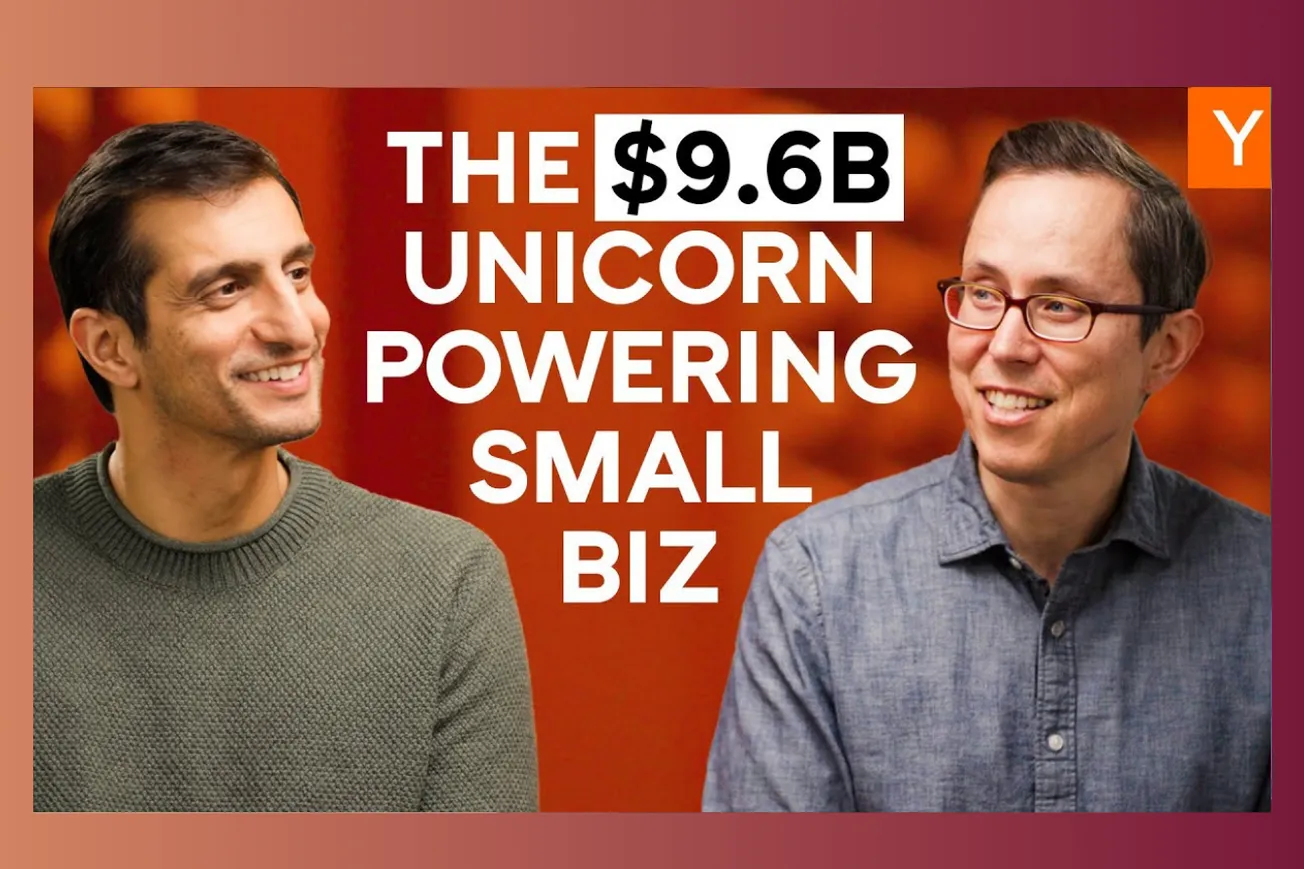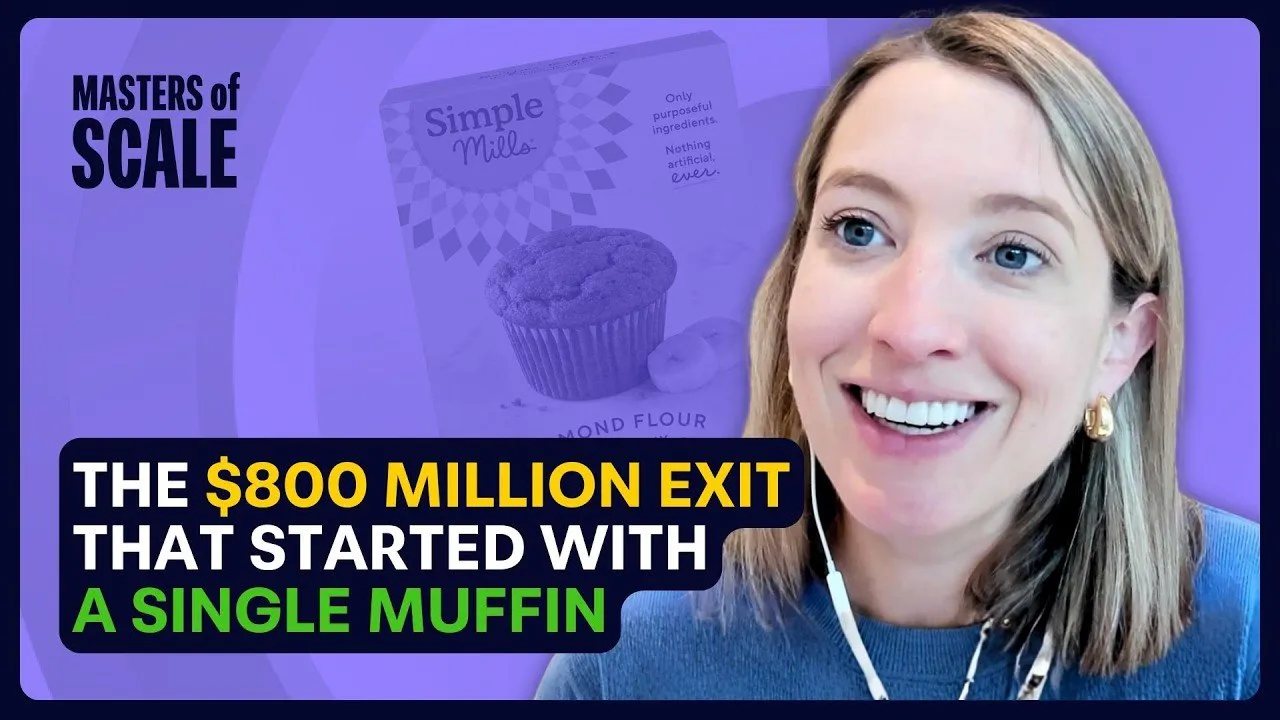Table of Contents
Josh Reeves and his co-founders pivoted from expert advice platform to payroll company weeks before YC started, ultimately building Gusto into a $9.6 billion business serving mainstream America.
Learn how three Stanford engineers with zero payroll experience disrupted a fragmented industry through obsessive problem focus and human-centered design.
Key Takeaways
- Gusto founders completely abandoned their expert advice platform idea within weeks of YC acceptance, pivoting to payroll after recognizing their lack of obsession with the original problem space
- The team built a functioning payroll system from scratch with zero domain expertise, using their own company as the first test case to ensure reliability
- 40% of US companies were still making payroll mistakes annually when Gusto launched, revealing massive market opportunity despite established incumbents like ADP and Paychex
- Josh raised the largest seed round in YC history at that time by focusing on disruption narrative: cloud technology, paperless processes, and new distribution methods favoring startups over incumbents
- Gusto deliberately infused "warmth and humanity" into traditionally cold B2B software, differentiating through design philosophy rather than just functionality
- Three co-founders maintained equal partnership for 13+ years by aligning on core values, investing in communication, and sharing "productive discontent" about unsolved problems
- The company avoided early public launch, instead manually onboarding fellow YC companies to prove system reliability before scaling to unknown customers
- Fragmented markets with bad incumbents provide better opportunities than "blue ocean" spaces with no existing players or revenue validation
- AI enables Gusto's vision of becoming an opinionated back-office agent rather than just a software tool, personalizing recommendations based on business patterns
Timeline Overview
- 0:00–1:13 — Introduction: Setting up conversation between Harj Taggar and Josh Reeves about Gusto's journey
- 1:13–1:43 — Current Gusto scope: Payroll, benefits, workforce management, and international hiring capabilities
- 1:43–5:20 — Original pivot story: From expert advice platform to payroll company within weeks of YC acceptance
- 5:20–10:24 — Problem space selection: Why obsession matters more than logical business validation frameworks
- 10:24–11:34 — Early customer strategy: Manual onboarding of YC companies before public launch in December 2012
- 11:34–14:36 — Investor pitch success: Raising largest YC seed round through disruption narrative and market timing
- 14:36–16:02 — Design philosophy: Bringing warmth and humanity to traditionally sterile B2B software experiences
- 16:02–17:50 — Peer group insights: Leveraging other founders' experiences despite building different product category
- 17:50–19:37 — Multi-product scaling: Creating separate swim lanes while maintaining startup speed and customer obsession
- 19:37–21:28 — Competition philosophy: Why fragmented markets with slow incumbents create ideal startup opportunities
- 21:28–22:43 — Co-founder longevity: Maintaining three-way partnership through aligned values and productive discontent
- 22:43–23:50 — AI integration vision: Becoming opinionated back-office agent rather than passive software tool
The Great Pivot: From Expert Advice to Payroll Processing
- Gusto's original idea involved connecting people with experts who weren't online—Josh's teacher mother giving parenting advice, Eddie's doctor father providing medical guidance. The founders built a functional prototype within one week that routed calls through Google Ads keywords to available experts.
- Within two weeks, they discovered the platform attracted primarily astrology and relationship advice questions rather than the professional expertise they intended to facilitate. None of the founders felt equipped or interested in building a business around these question types.
- The pivot to payroll happened through logical progression: expert platforms needed contractor payments, which led to marketplace payout systems, which naturally evolved into general payroll processing. This transition occurred entirely before their January 2012 YC batch began.
- Josh emphasizes that successful pivots require both logical validation and emotional resonance—you need proof that problems exist and solutions create value, but founders must also feel genuine obsession with the problem space. Without internal motivation, you won't sustain the decade-plus commitment required for major success.
- The team recognized payroll as a mainstream business problem affecting people "across the country, across the world" rather than just Silicon Valley, appealing to their desire to solve universal rather than niche technical challenges.
Building Payroll Systems from Zero Domain Knowledge
- Despite having no payroll experience, the founders immediately focused on building a functioning system rather than theoretical planning. They scoped their initial solution to bare minimum requirements: tax calculations, tax filings, tax payments, and money movement from employer to employee accounts.
- The team deliberately limited their first version to California-only operations for new companies without historical tax data, significantly reducing complexity while proving core functionality. This geographic constraint allowed them to focus on essential features rather than multi-state compliance variations.
- Gusto founders added personal stakes by refusing to pay themselves until their own system could handle their payroll processing. This approach ensured they experienced every user friction point and reliability issue firsthand before asking customers to trust the platform.
- They manually onboarded fellow YC companies as early customers, leveraging existing relationships and shared risk tolerance among startups. These customers provided crucial feedback while understanding they were participating in early-stage product development rather than expecting polished enterprise software.
- By Demo Day, Gusto could accurately claim processing millions of dollars in annualized payroll volume, creating compelling investor narrative despite relatively small actual transaction volumes. This framing technique helped communicate scale potential rather than just current metrics.
The Disruption Narrative That Attracted Record Investment
- Josh raised the largest seed round in YC history at that time by positioning Gusto within broader technology and distribution disruptions favoring startups over incumbents. The timing aligned with cloud computing, paperless processes, and mobile adoption trends that established players struggled to leverage.
- The payroll market presented ideal disruption conditions: massive incumbents (ADP and Paychex worth over $100 billion combined) serving less than 30% of total customers, leaving millions of businesses using pen-and-paper systems. This fragmentation indicated both huge market size and incumbent failure to serve smaller customers effectively.
- Rather than accepting traditional VC funding, Josh chose to raise from 20+ CEO and founder angels including leaders from PayPal, Stripe, Mint, Instagram, and other successful companies. This investor group provided operational expertise and networking advantages beyond just capital.
- The angel investor strategy reflected Josh's belief that most investors get excited about large markets with clear business models and defensible disruption strategies. The payroll space offered all three elements with additional validation from experienced operators who had felt these pain points while building their own companies.
- Gusto's straightforward SaaS revenue model contrasted with many 2011-era startups focused on user growth without clear monetization paths, making the business model immediately comprehensible to investors (see our [previous post] on sustainable business models).
Design Philosophy: Bringing Warmth to B2B Software
- Gusto deliberately infused "warmth and humanity" into payroll software, rejecting both the cumbersome complexity of legacy systems and the cold efficiency of purely functional tools. Josh believed their product space required balancing powerful automation with personal partnership elements.
- The design philosophy emerged from recognizing that payroll involves "magical moments"—paying someone for their work or receiving compensation—that deserve thoughtful, human-centered experiences rather than sterile transaction processing. This emotional approach differentiated Gusto in a traditionally utilitarian software category.
- Reliability and accuracy remained non-negotiable requirements, but the team layered warmth and personality on top of robust functionality rather than treating design as superficial decoration. This approach acknowledged that business-critical software can simultaneously be pleasant and engaging to use.
- The founders viewed software as capable of being either frustratingly cumbersome or coldly mechanical, choosing instead to create tools that feel like collaborative partnerships. This philosophy guided interface decisions and communication tone throughout the platform development.
- Gusto's design approach proved that B2B software doesn't require sacrificing user experience for functionality, establishing competitive differentiation through experience quality rather than just feature sets or pricing advantages.
Leveraging Peer Networks Despite Unique Challenges
- Despite building payroll software while most peers focused on consumer mobile apps, Josh found relevant advice from founders tackling different but related challenges. Jeremy Stoppelman from Yelp provided small business insights, while Dharmesh Shah from HubSpot shared front-office perspectives on serving similar customers.
- The founders benefited from fintech pioneers like Max Levchin from PayPal and Patrick Collison from Stripe, who understood both payment processing complexities and company-building fundamentals. These relationships provided both technical insights and operational guidance for scaling financial services startups.
- Josh emphasized that technology encompasses diverse problem spaces, so founders shouldn't assume they lack relevant peer networks just because their specific product category seems unique. Cross-industry insights often prove more valuable than narrow vertical expertise.
- The angel investor group doubled as an advisory network, with Josh noting he would have "honestly paid money" for access to their guidance. This dual relationship structure provided ongoing support beyond just initial funding rounds.
- Building relationships with founders from different YC batches and successful companies created lasting advisory networks that continued providing value throughout Gusto's growth phases.
Scaling Multi-Product Development While Maintaining Startup Speed
- Gusto expanded from payroll to benefits by creating separate five-person teams with the same autonomy and customer obsession that characterized their original startup phase. This approach required pulling resources from core payroll development, creating tension between focus and expansion.
- The benefits team operated as an independent "swim lane" within the company, maintaining direct customer relationships and iterative development processes. Existing Gusto customers provided eager feedback and early adoption, making market validation easier than acquiring entirely new customer segments.
- Josh emphasized timing challenges in multi-product strategy: expanding too early spreads resources too thin, while waiting too long misses opportunities to solve additional customer problems. The decision required confidence that core payroll functionality was sufficiently developed to support resource allocation elsewhere.
- The swim lane organizational structure persisted as Gusto added more products, with each team maintaining problem-specific obsession and customer connection. This approach prevented bureaucratic overhead while enabling specialized focus on distinct product areas.
- Current multi-product operations still emphasize team autonomy and customer obsession, treating each product area as a separate startup within the larger organization while maintaining shared infrastructure and go-to-market capabilities.
Competition Strategy in Fragmented Markets
- Josh advocates for embracing competition rather than avoiding it, particularly in fragmented markets where no single player dominates. Competition validates that other smart people recognize business opportunities in the space, reducing concerns about market viability.
- Massive fragmentation in payroll—with industry leaders holding less than 30% market share—created abundant opportunity for multiple players to succeed simultaneously. This environment enabled focus on execution rather than zero-sum competitive positioning against specific rivals.
- The key strategic requirement involves differentiation from larger competitors through unique approaches rather than direct feature competition. Gusto succeeded by moving faster than established players and focusing on underserved small business segments rather than enterprise customers.
- Josh warns against copying strategies from much larger, better-funded competitors who can outspend and out-resource smaller players. Success requires identifying advantages that favor startups—typically speed, focus, and customer experience—rather than competing on incumbents' strengths.
- Fragmented markets with slow-moving incumbents provide ideal conditions for startup disruption, offering validation of customer willingness to pay while creating opportunities for differentiated approaches to capture market share.
Sustaining Three-Founder Partnership for 13+ Years
- All three Gusto co-founders remain actively involved after 13 years, which Josh attributes to aligned core values around technology, meaningful problem-solving, and deriving joy from helping others. These foundational alignments create sustainable working relationships beyond just business partnership.
- The founders share "productive discontent"—simultaneous pride in progress and eagerness for next steps driven by awareness of unsolved problems and unhelped people. This shared dissatisfaction with status quo maintains motivation and prevents complacency as the company succeeds.
- Long-term partnership requires investment in communication skills and feedback processes, treating co-founder relationships like any other important long-term relationship that needs active maintenance and development. The team consciously works on interpersonal dynamics rather than assuming alignment will persist automatically.
- Josh emphasizes that successful co-founder relationships need both compatible personalities and aligned missions, but also require ongoing effort to maintain effectiveness as individuals and company circumstances evolve over time.
- The three-way partnership structure provides balanced decision-making and prevents two-against-one dynamics that can destabilize dual-founder companies, while maintaining small enough group size for efficient communication and consensus-building (see our [previous post] on co-founder relationship management).
AI Integration as Opinionated Business Partner
- Gusto's AI strategy focuses on becoming an opinionated partner rather than just providing menu options, recognizing that small business owners lack time and resources to evaluate complex decisions independently. AI enables more personalized, proactive guidance based on business patterns and industry data.
- The vision involves AI-powered pattern matching across customer industries, growth rates, and business profiles to provide tailored recommendations rather than generic advice. This approach leverages Gusto's extensive customer data to deliver contextual insights that individual businesses couldn't develop independently.
- Josh sees AI as accelerating Gusto's existing vision of comprehensive back-office support rather than fundamentally changing their mission. The technology enables faster, more sophisticated execution of their partner-focused approach to small business services.
- The integration strategy emphasizes proactive problem-solving rather than reactive tool usage, with AI identifying potential issues and opportunities before customers recognize them independently. This approach transforms software from passive utility to active business advisor.
- Gusto's AI development focuses on practical business applications rather than experimental features, maintaining their core emphasis on reliability and accuracy while adding intelligence layers that enhance decision-making capabilities for small business owners.
Common Questions
Q: How do you know when to pivot from your original startup idea?
A: Look for both logical validation (market size, business model) and emotional resonance—if you're not obsessed with the problem space within weeks, consider exploring alternatives.
Q: Can founders succeed in industries where they have no prior experience?
A: Yes, but start with minimum viable solutions in constrained markets. Gusto began with California-only, new-company payroll before expanding to complex multi-state operations.
Q: Should early-stage founders worry about established competitors in their market?
A: Competition validates market opportunity, especially in fragmented industries. Focus on differentiated strategies rather than avoiding competitive spaces entirely.
Q: How do you maintain startup speed while building multiple products?
A: Create separate "swim lanes" with autonomous teams that maintain customer obsession and iterative development processes within the larger organization structure.
Q: What makes co-founder relationships work long-term?
A: Aligned core values, shared "productive discontent" about unsolved problems, and active investment in communication skills and feedback processes over time.
Conclusion
Gusto's journey from expert advice platform to $9.6 billion payroll empire demonstrates that billion-dollar companies can emerge from rapid pivots when founders recognize the difference between logical business opportunities and genuine problem obsession. Josh Reeves and his co-founders succeeded not because they had payroll expertise, but because they felt compelled to solve mainstream business problems affecting millions of people rather than niche Silicon Valley challenges.
The story reveals several counterintuitive principles about building lasting companies. Competition signals opportunity rather than obstacle, particularly in fragmented markets where incumbents serve customers poorly despite generating substantial revenue. Starting with severe constraints—single state, new companies only, manual processes—enables faster learning and iteration than attempting comprehensive solutions immediately. Most importantly, founder alignment on values and mission matters more than specific domain expertise or perfect initial ideas.
For aspiring founders, Gusto's experience offers clear practical guidance:
- Prioritize problem obsession over logical frameworks: You'll spend a decade on this challenge, so emotional connection matters more than spreadsheet validation
- Use your own product relentlessly: Build systems robust enough for your own critical business processes before asking customers to trust them
- Embrace manual processes initially: Prove core value proposition through high-touch service before building scalable automation systems
- Target fragmented markets with bad incumbents: Profitable but poorly-served customers validate demand while creating disruption opportunities
- Invest in design and experience: B2B software can be both functionally excellent and emotionally engaging through thoughtful human-centered approaches
- Maintain co-founder relationships actively: Long-term partnerships require ongoing communication investment and shared commitment to continuous improvement
- Build peer networks across industries: Founders from different verticals often provide more valuable insights than narrow competitive intelligence
The path from garage startup to public company leadership requires navigating countless pivots, setbacks, and scaling challenges while maintaining the intensity and customer obsession that enabled initial success. Gusto's sustained growth over 13+ years proves that technical founders can build massive businesses in traditional industries through superior execution and genuine commitment to solving fundamental human problems.





